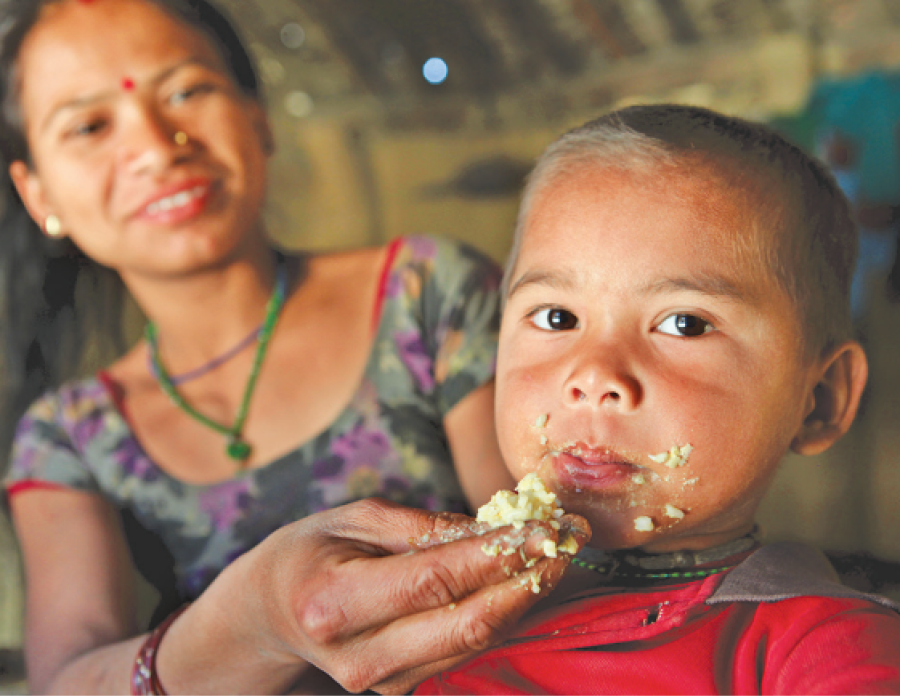National
Pandemic can derail progress made in child nutrition, UNICEF warns
Says Nepal achieved marked progress in reducing child stunting during 2002-2016.
Post Report
Nepal has made significant progress in reducing child stunting and scaling up nutrition services during the Millennium Development Goals era (2002 -2016), according to UNICEF-Nepal.
Nepal, however, still faces considerable nutrition-related challenges, and progress towards the Sustainable Development Goal (SDG) targets on stunting and wasting is not advancing at the speed, scale or equity required, and may be further derailed by the effects of the Covid pandemic, the UN body warned, citing a special supplement of the Maternal and Child Nutrition Journal published Thursday.
Stunting in children (under the age of two) decreased by 24-percentage points between 1996 (57 percent) and 2016 (33 percent), which has been attributed to the increased coverage of health and nutrition services and improvements in household wealth, parental education, and sanitation, the UN body said citing the special supplement.
Similarly, between 1996 and 2016, the early initiation of breastfeeding increased from 18 percent to 56 percent, and complementary feeding, which is giving infants other food besides breast milk, increased from 54 percent to 77 percent.
Also, more Nepali women took iron and folic acid supplements during pregnancy, and over 80 percent of children under five years of age have been taking Vitamin A supplements, the statement said. As a result of these micronutrient supplements, between 2002 and 2015, the lives of an estimated 45,000 Nepali children under the age of five were saved, according to the UN body.
The progress has been attributed to efforts by successive governments and the involvement of more than 50,000 female community health volunteers.
Compared to 1998, when just 35 percent of Nepali households used iodized salt, the percentage of households using such salt had more than doubled to 77 percent by 2016.
“The decline in the number of malnourished children, improvements in health facilities and services, and the multisectoral approach used in Nepal over the past three decades are a testament to Nepal government’s commitment to reducing all forms of malnutrition,” the UNICEF statement quoted EU Ambassador to Nepal, Nona Deprez, as saying.
But UNICEF has noted that the Covid-19 pandemic has become a human and socio-economic crisis that threatens to unravel past progress on nutrition. The UN body has asked the government and partners to improve the health of children in Nepal by giving greater attention to improving access to nutritious, safe, affordable, and sustainable diets throughout childhood, adolescence and in the years of childbearing.




 13.12°C Kathmandu
13.12°C Kathmandu













